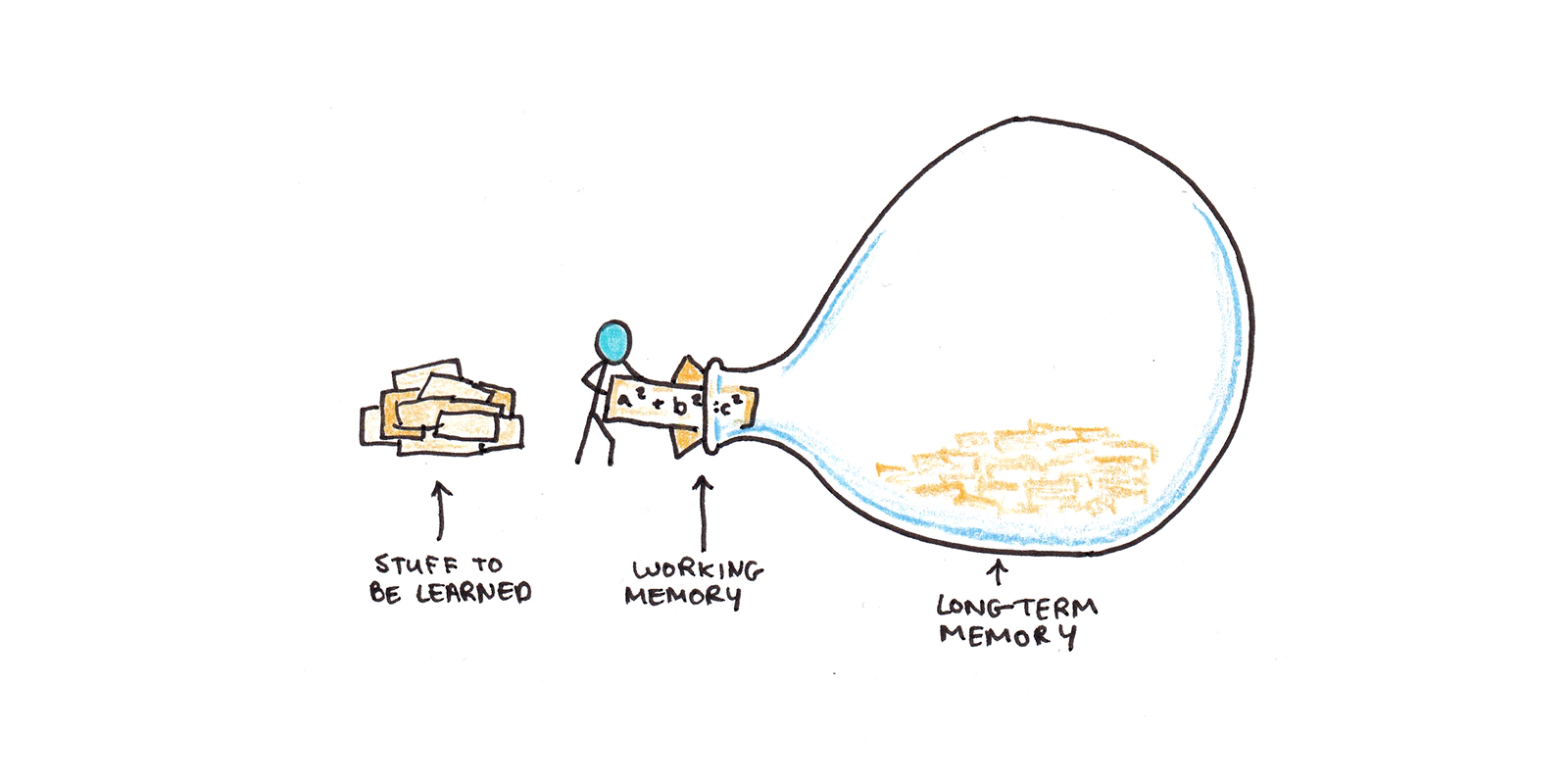Andrelina Hsu Week 14 - Between Remembering and Forgetting
Between Remembering and Forgetting
“No, I can’t even remember what I had for breakfast this morning,” is what I said to my dad in a recent conversation where he asked me about something that happened last week. As sarcastic as it may sound, this phrase is widely used and actually underscores a fundamental truth about memory: its capricious nature. While we may joke about forgetting seemingly mundane details like breakfast choices, the reality is that memory lapses are a universal phenomenon that affect people in one way or another throughout their lives.
 In order to dig deeper into the relationship between remembering and forgetting, we have to consider the conversations and sensations that make up our daily lives. From the moment we wake up, our brains immediately begin to be saturated with a ceaseless stream of information. Therefore, it is no surprise that a few details slip through the cracks in the intricate maze of memories as the brain works hard to take in all the new data while simultaneously figuring out how to properly store the old data.
In order to dig deeper into the relationship between remembering and forgetting, we have to consider the conversations and sensations that make up our daily lives. From the moment we wake up, our brains immediately begin to be saturated with a ceaseless stream of information. Therefore, it is no surprise that a few details slip through the cracks in the intricate maze of memories as the brain works hard to take in all the new data while simultaneously figuring out how to properly store the old data.
One theory that sheds light on the phenomenon of forgetting is the Retrieval Failure Theory. When you try to recall what you had for breakfast this morning, no matter how hard you try, your mind is completely blank. The information is not necessarily lost forever. Instead, according to the Retrieval Failure Theory, it suggests that the memory is still stored someplace in the back of your mind, but the retrieval cues and abilities needed to access it are momentarily absent or inadequate. This is largely due to the fact that memory retrieval is much like a puzzle: in order to piece together the full picture, you need the right clues. It is likely that you're distracted by whatever main event has been going on throughout the day, causing the memory to remain elusive and hide just beyond reach.

Nevertheless, amidst all of the mambo and jumbo going on inside our minds, we still possess the remarkable ability to sift through the chaos and recall certain things that matter to us, and it is through this that we make up our identities and perceptions of the world. Memories serve as the building blocks of our consciousness, connecting the experiences of our past to form an understanding of our present reality. Therefore, the next time you find yourself in a situation struggling to recall the details of a distant memory, try to remember that forgetting is not a sign of weakness, but rather a proof of the vast possibilities that lie ahead.
Hi Andrelina,
ReplyDeleteI really like how interesting the first sentence of your introduction is. I think that introducing the topic of your blog with something you not only said in your own words but also something that is very unique and interesting is such a special way to start your blog. I also found your take on memory to have a very “capricious nature” to be quite insightful. I have mostly only heard of memory in a positive light regarding how it allows you to be nostalgic and reminisce about the past. However, I never quite thought that deeply about the “forgetting” part of memory, and after reflecting on it, I couldn’t agree with you more on the fact that the fundamental truth of memory is its somewhat fickle nature. I also found the retrieval failure theory to be very enlightening. I have often experienced blanking out completely at certain times despite knowing that I truly do know and understand what I was trying to say. In a certain way, learning about the retrieval failure theory has made me feel at ease since I know that the memories I may not instantly recall are still there with me and aren’t lost forever. I often forget a lot of things, and thankfully, so far these haven’t been anything big. However, if I do happen to forget something significant or important, it's reassuring to know that I’ll be able to come back to it eventually with the right clues. I really enjoyed your blog and from now on, I hope to utilize your advice that forgetfulness is not a weakness but is rather proof of the sea of possibilities ahead of me.
Hi Andrelina! Your blog on memory dives into the intricate workings of the human mind, bringing light on the complexities of recalling information and the significance of forgetfulness in our daily lives. You highlighted how often memory blanks happen, emphasizing that even seemingly small details like breakfast choices can slip from our minds amidst the constant bustle of new information. This observation highlights the immense cognitive load placed on our brains. The Retrieval Failure Theory you discussed provides valuable insight into the mechanisms behind forgetting. By comparing memory retrieval to solving a puzzle, you effectively illustrate how the absence of proper retrieval cues can hinder our ability to access stored information. This concept helps contextualize the common experience of struggling to recall specific details despite knowing that the information is somewhere in our minds. Additionally, I found that your acknowledgment of the remarkable capacity of the human mind to sift through the chaos and retrieve meaningful memories to be powerful. This ability to recall significant experiences and form connections between past events shapes our identities and perceptions of the world around us, highlighting the essential role that memory plays in constructing our consciousness. Overall, your blog encourages a change in viewpoints. It describes forgetting as not a weakness, but rather as a natural aspect that is a part of our minds. Great job!
ReplyDelete